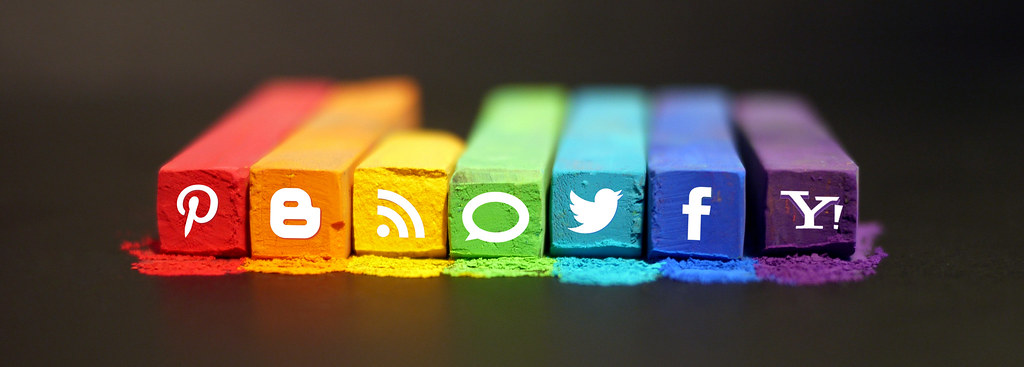NO side: Words By Ellie Doughty
For the first time in history, more than half of Earth’s population is now using social media.
DataReportal shows that social media usage has grown significantly throughout the last year, with users increasing by over 10%, taking the global total to 3.96 billion just at the start of July 2020. The question of whether this online space only benefits seems in retrospect of 2020 to be obvious to me; no.
There are many reasons for this I could unpick, but two principle points come to mind.
The first is concerned with activism. Throughout a year where most people were at some point shut indoors, the only window to the rest of the world for many was technology and the social media that accompanies it.
Pex found that 80% of the most 100 watched videos on Twitter in the twelve days following the death of George Floyd were related to the Black Lives Matter movement. Another 10% were related to the more broad scope of racism or racial content.
That video, along with so many others last year, rocketed around the social media echo chambers of the internet; sparking international outrage and the largest demonstration in American history.
Alongside BLM, social media has also provided a voice and momentum to other movements including Me Too, the body positivity movement and climate change efforts. For example, the instagram hashtag #sustainablefashion has grown in use on the platform by four times in Europe since 2015, and by six in the US.
While a new wave of activist influencers have dominated some corners of social media more over the last year, arguments of ‘empty’ activism have been made, questioning the kind of virtue-signalling posts which have very limited real life impact.
Despite this, the impact of influencers who engage in activism has had an observable impact, particularly within the last year on racism, sexism, diversity and representation, the climate crisis and more. Activism such as this benefits everyone, when it pushes for the enforcement of global human rights, respect and dignity amongst human beings. Surely whatever can catalyse such a progress benefits us all?
Perhaps not, when you look beyond the swanky brand deals stuffed into influencer feeds, and take a look at the impact on them behind the screens.
Insider surveyed influencers and found that nearly half said their job impacted their mental wellbeing, and 32% said it cultivated negative body image issues. Influencer Agency’s 2020 survey polled influencers to find that the average time spend on their phones per day was just over 9 hours. Three quarters of each day. 3,285 hours per year. It’s been long proven that social media can and does have a detrimental mental impact on users, especially on Instagram with its keen design of addictive scrolling.
The pressure to always be present online, producing captivating content, reaching the audience and maintaining peoples interest is not a small one. I personally don’t think I could give up my privacy in such an irreversible way, despite the seemingly glittering temptation of the ‘influencer lifestyle’, but for those who do, it’s not a path they can turn around and walk back down.
This is certainly not a job which only benefits them.
It would seem that this past year has certainly changed the way social media is used, absorbed and weaponized by our society. A new wave of younger people are dominating the airwaves in a way their predecessors simply didn’t have access to, and if you need more convincing look no further than AOC’s biting Twitter account.
However, besides the (admittedly expected) mental health repercussions, and the strength of 2020 social media justice efforts, the pressure to be ‘woke’ now is also bigger than ever before.
Cancel culture took on a renewed breadth of life in 2020, with notable campaigns on social media including the Chidera Eggerue and Florence Given debate. Others such as YouTubers’ James and Myka Stauffer responded to internet backlash concerning the rehoming of their neurodiverse adopted child with a YouTube video and a four page Instagram statement. They have yet to return full time to their main online accounts. Long time ‘original’ YouTuber Jenna Marbles apologised for offensive and insensitive past content in June of last year and has not posted since, a self imposed ‘cancel’.
The question of whether these people deserved their platforms is not one I am informed enough to answer, but social media is a very volatile world to make a career out of and not always influencer friendly.
YES side: Bryony Rule
Inconceivable to careers advisors a decade ago, social media influencing has undoubtedly ballooned into an established full-time job. This role is one which comes with a handsome payment; although earnings differ hugely within the industry, it is widely acknowledged that the profession can be extremely lucrative – it is not unheard of for prominent influencers to earn upwards of $1 million simply for a post on Instagram.
The perceived benefits of the job have captured the attention of younger generations, 31% of whom, according to a survey conducted by Awin, now aspire to be a social media influencer or YouTuber when they grow up, citing money and fame as key motivating factors. However, the material gains are not the only draw of building a rapturous following.
There are many different types of people who come – perhaps to the discomfort of some who are unwittingly incorporated – under the umbrella term of ‘influencer’. For many in this bracket, the commodification usually associated with the influencer label is not their modus operandi. Rather, many influencers have found a safe haven in online spaces, where they have been able to build meaningful communities around shared causes and interests. Social media has provided a platform for people to share their passions, and craft a career around these, largely on their own terms. These communities cover all bases, from social justice and environmentalism, to fitness and motherhood.
Another asset offered by social media is the opportunity it provides for users to construct their own narratives. In contrast to the old-guard media of women’s magazines and tabloid journalism, social media hands the tools to individuals themselves to construct the image they want to present to the world. Renowned for twisting words, initiating witch-hunts and gross privacy breaches, traditional media has a history of reproducing stories of people, particularly women, over which the individual concerned has no control or input. Social media and the influencing economy which accompanies it hands autonomy back to women, providing a much-needed counterbalance and opportunity for women to tell their own story.
Needless to say, however, exhibiting your life online to the masses does not come without its pitfalls. The monetary gain, gifting, loyal fanbase and space for expression that influencers gain from their platforms is often accompanied by an immense pressure, scrutiny and constraining expectations.
However, for the average user of social media, these downsides are arguably more pronounced, reinforced and exacerbated by the influencers that they follow. Whilst the influencer-follower relationship is ostensibly built on trust and relatability, this is often a fallacy. Influencers do not use social media in the same casual way as their many followers. Although posts may present a candid quality, they are generally carefully crafted to present a prespecified image. This creates a warped perception of reality amongst those who consume this content, who only see the end result, and not the means utilised to produce it.
The introduction of Advertising Standards Authority guidelines which require influencers to disclose when they are being paid to feature a product, have helped to improve the transparency between influencer and audience. However, in many respects, this exchange remains indistinct. Instagram in particular has amplified an aesthetic which blurs the line between plastic surgery, editing and make-up, in turn entrenching this haziness into the minds of those of us who scroll. This lack of transparency serves to bewilder, as followers spend an inordinate amount of money, time and energy to emulate the look of their favourite influencer. As social media blurs the parameters of reality, we are led to believe that we too can attain this sought-after aesthetic, if we buy this product, follow this workout plan, drink this detox tea. And as we click purchase, the influencers reap the rewards.
The word ‘influencer’ carries with it some disturbing connotations. Whilst for these few, social media has offered a platform for their thoughts and opinions to be amplified, the majority of us submit to being ‘influenced’. Paying with our attention as we succumb to the addictive design of the algorithm, we are bombarded with the views of others as we scroll. This is bound to stifle individual thought and creativity, as we are presented with the opinions of others before we are able to form our own views on a matter. Slowly, not only do we begin to look like influencers, but to think like them too.
Social media has unequivocally undergone a significant transformation since the carefree days of unedited feeds of Starbucks cups and #tbt. Whilst for a minority these changes have proven immensely beneficial, for most it has bred a culture of warped perception, comparison and perpetual striving to imitate another.





